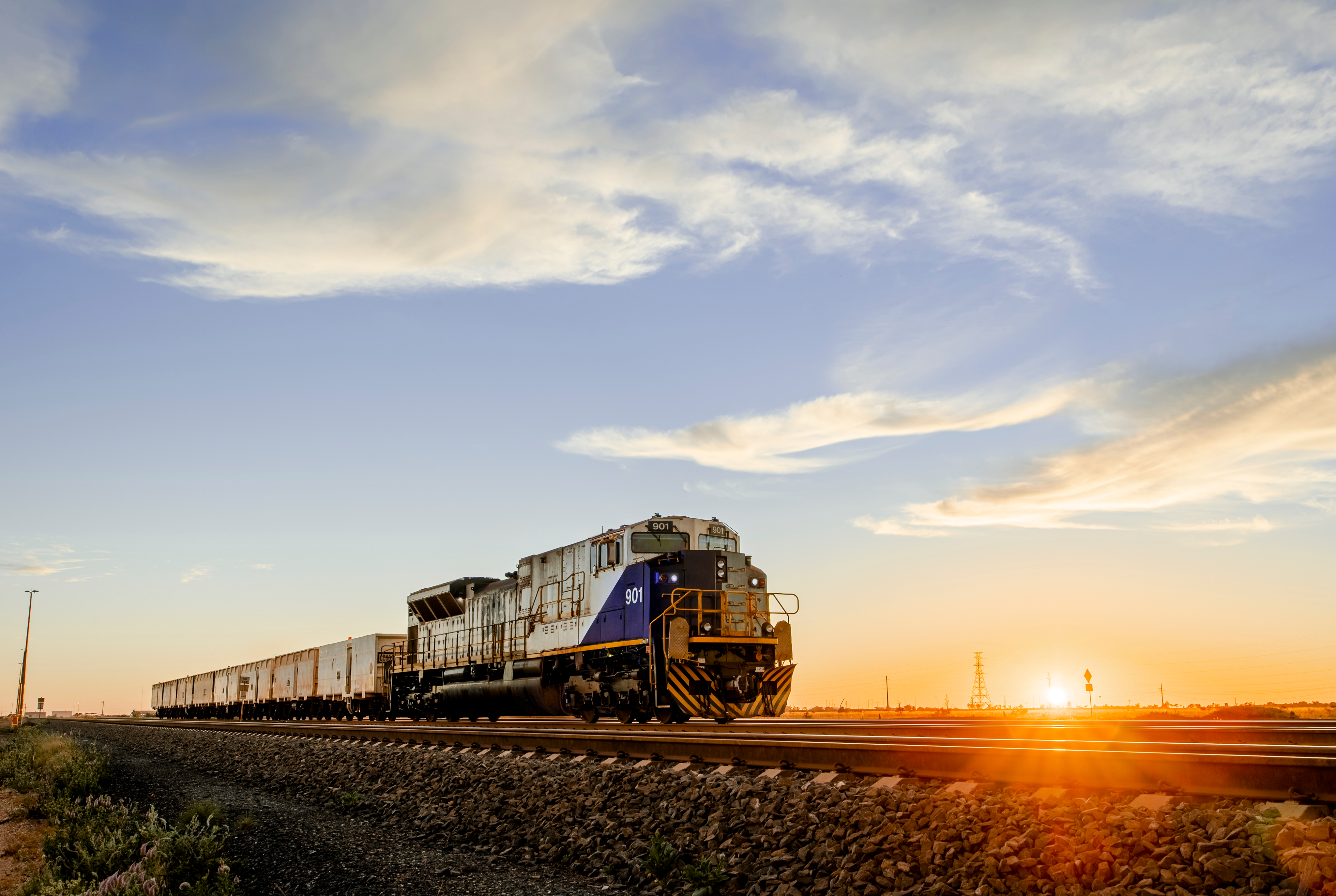Infinity Train
Fortescue’s self-sustaining, zero-emission iron ore train that recharges its batteries using gravitational energy, eliminating the need for diesel and reducing CO2 emissions.

Pioneering the Future of Sustainable Rail Transport
Fortescue's rail operations, powered by 54 locomotives, are crucial for moving iron ore, but come with a high environmental cost. In FY21 alone, they burned 82 million litres of diesel, making up 11% of the company’s emissions. To hit net zero by 2030, we needed a revolutionary solution to eliminate diesel use in our rail fleet.

Our Solution: The Infinity Train
We are developing the world's first regenerating battery electric iron ore train, known as the Infinity Train. This groundbreaking technology aims to create a self-sustaining, zero-emission rail system by harnessing the gravitational energy generated during downhill travel.
The Infinity Train uses the energy produced on downhill sections of our rail network to recharge its battery systems. This eliminates the need for external recharging infrastructure or additional renewable energy, making the train entirely self-sufficient on its return trip to reload.

Revolutionising Rail
The Infinity Train is transforming Fortescue’s rail operations, replacing diesel locomotives with a zero-emission alternative that recharges itself using regenerative energy. This innovation will support our goal of being diesel-free by 2030, while also setting a new standard for sustainability in the heavy industry sector.
